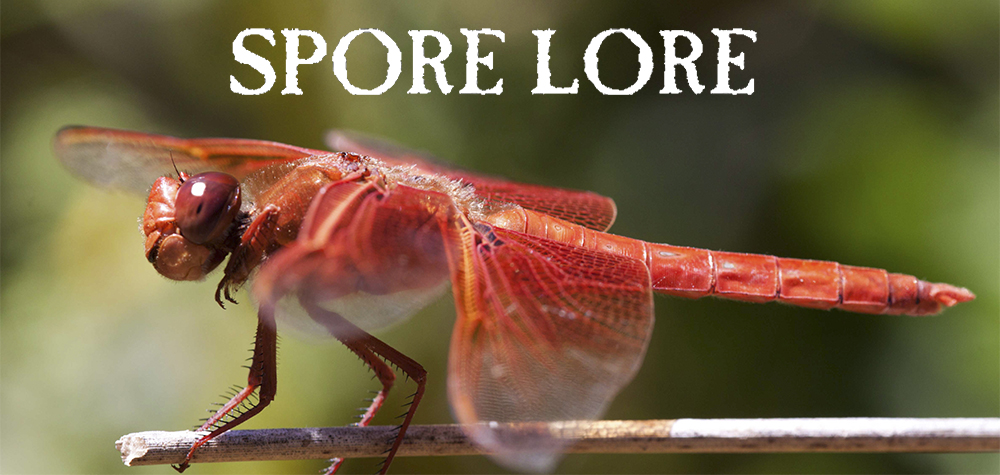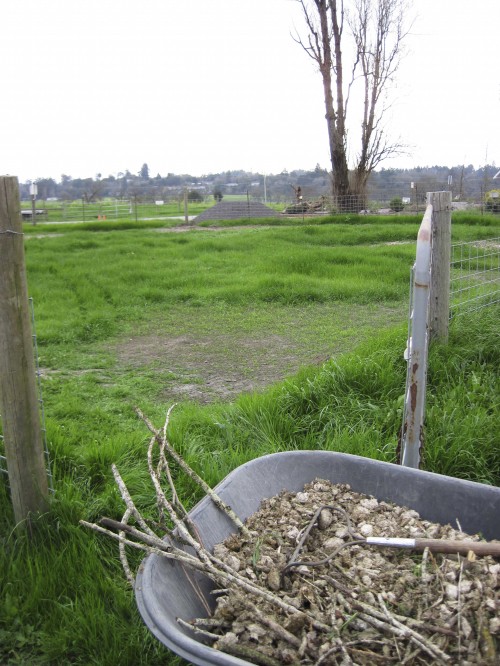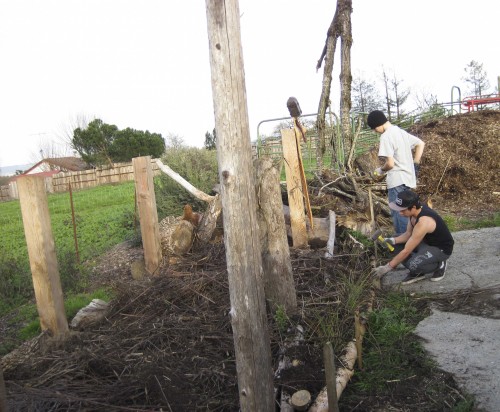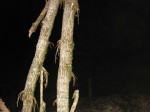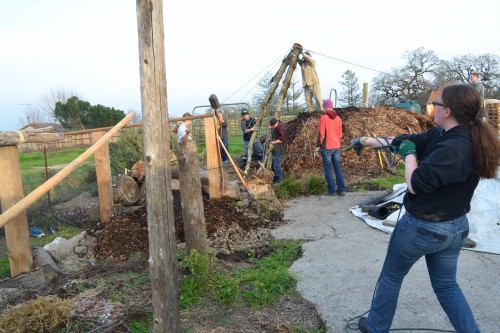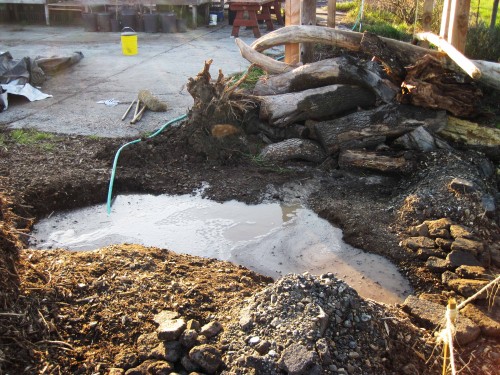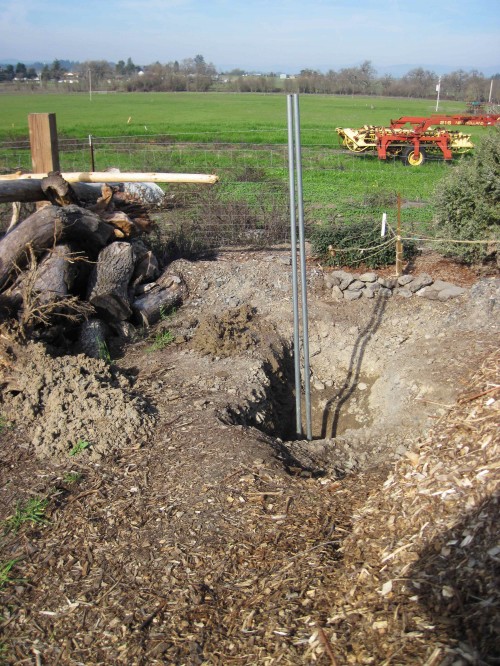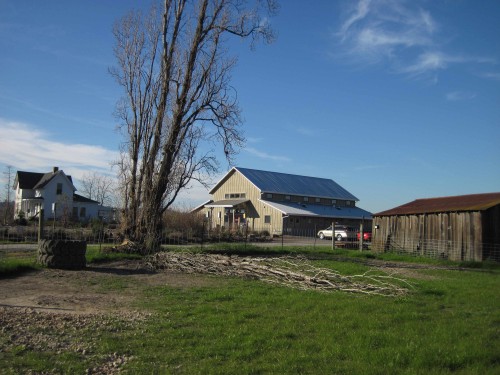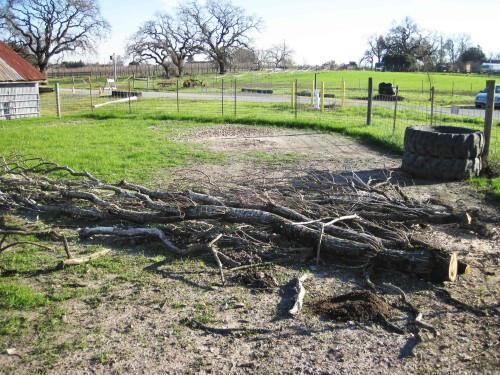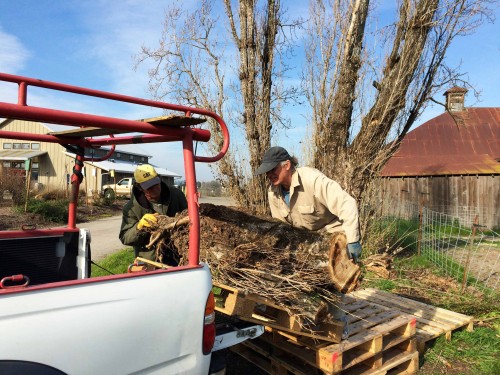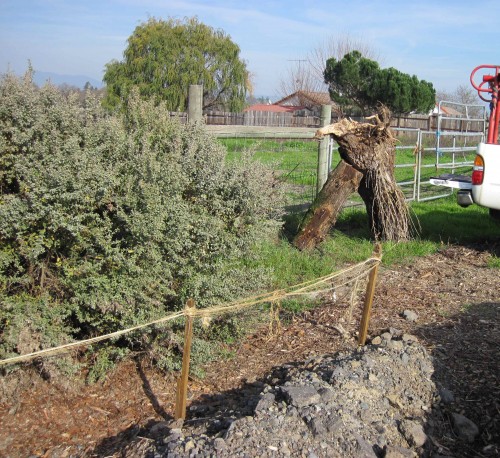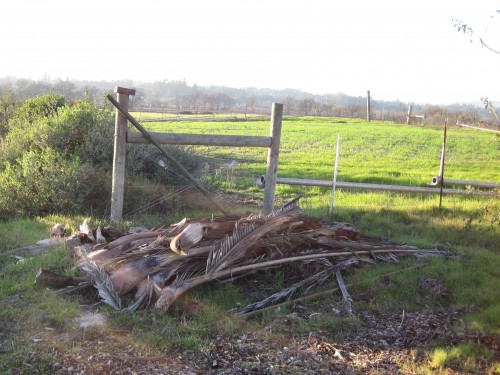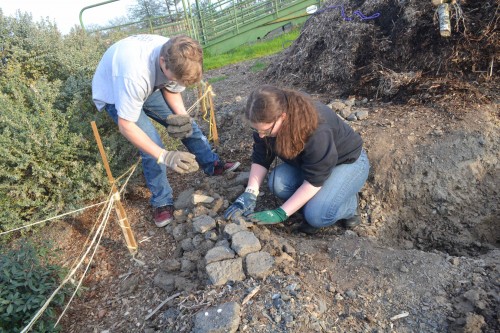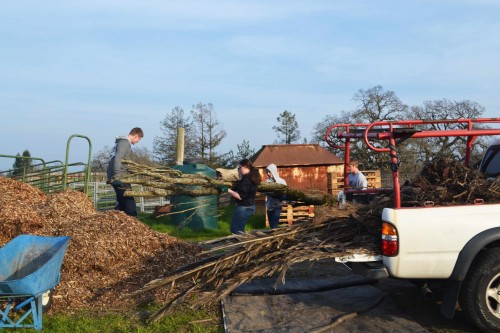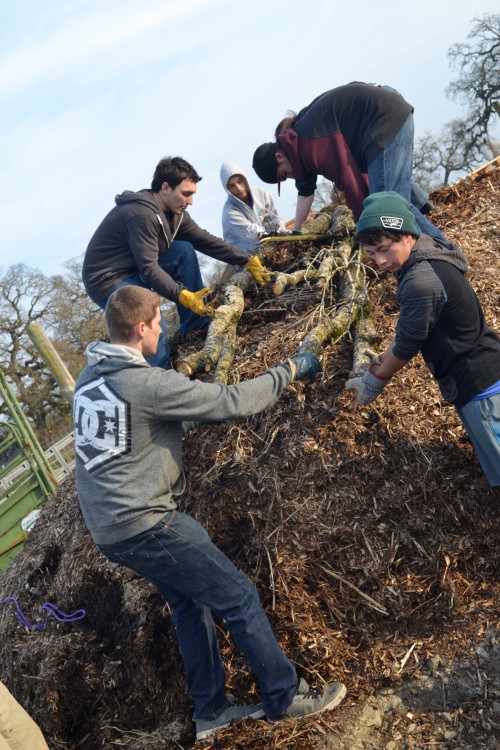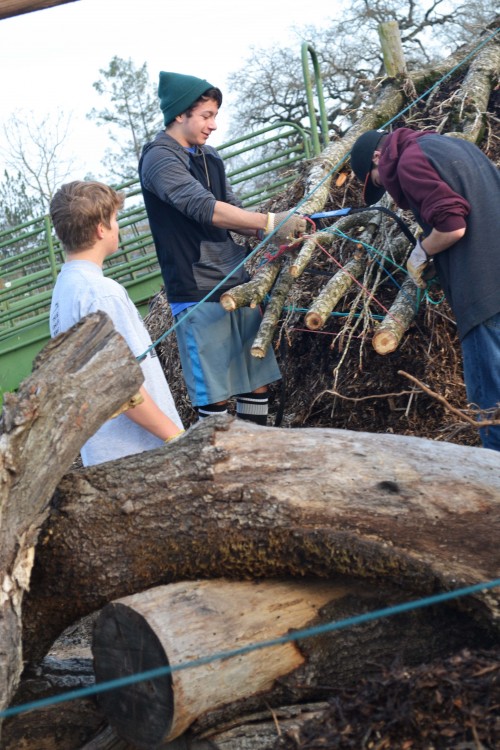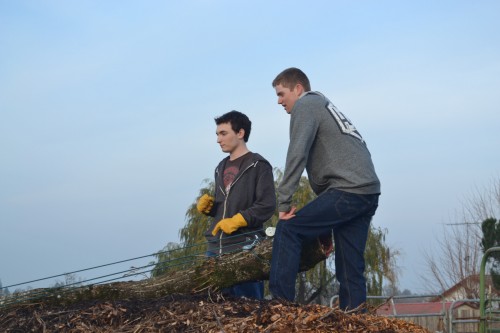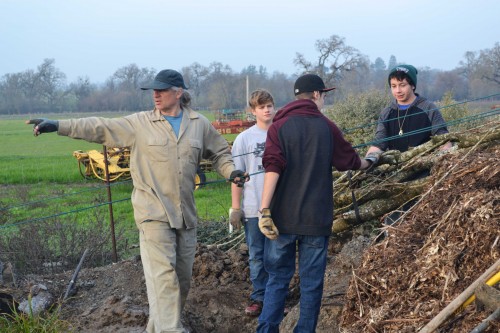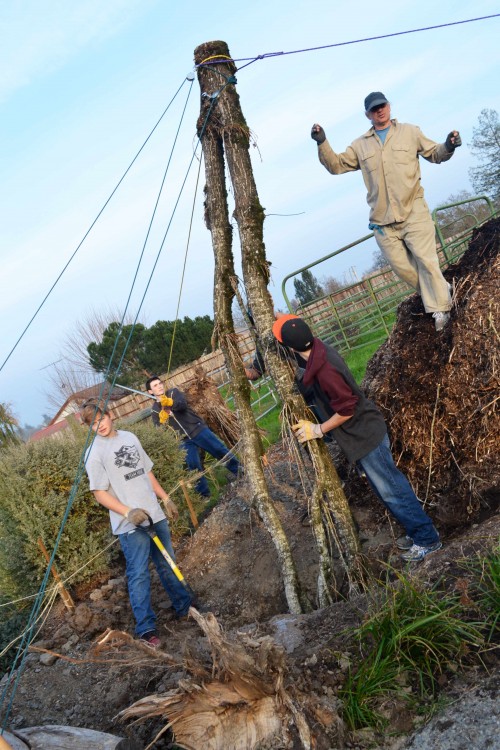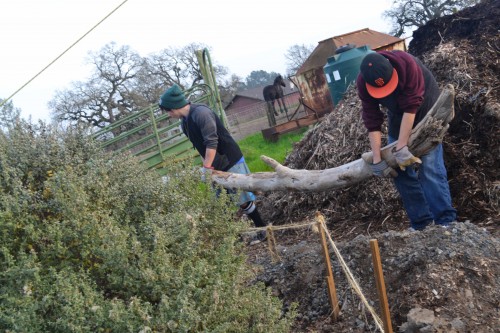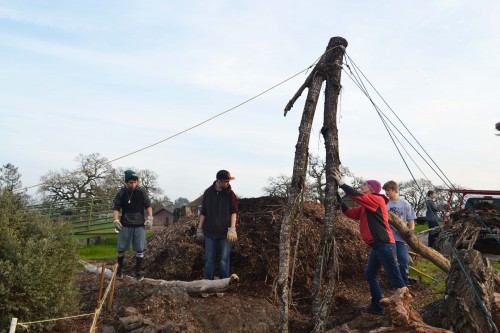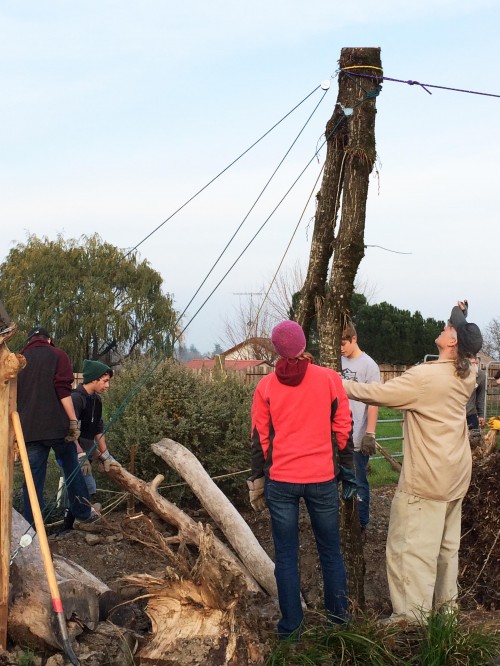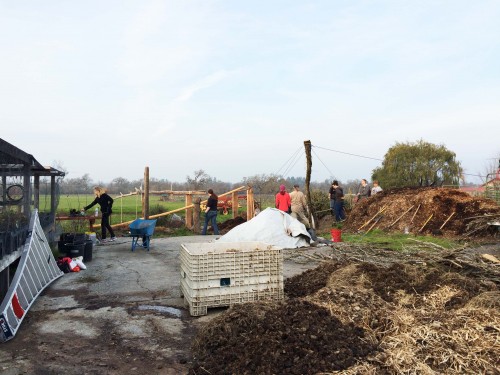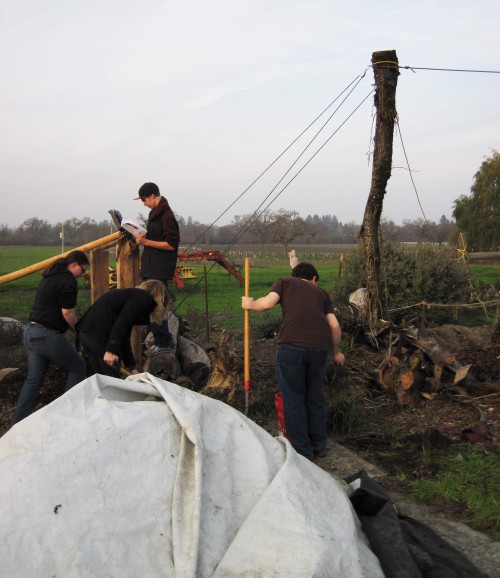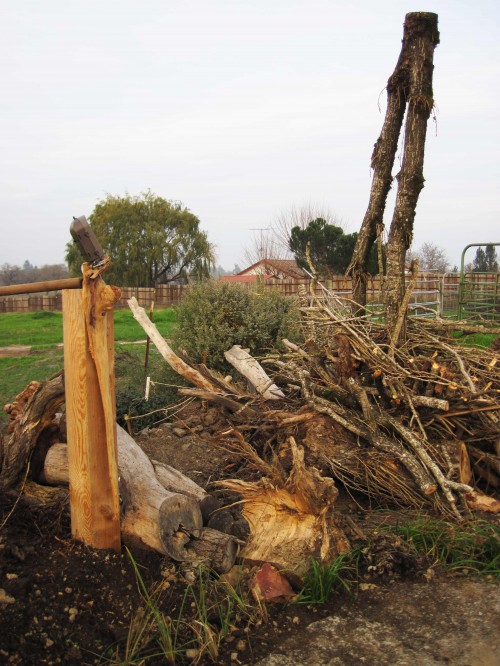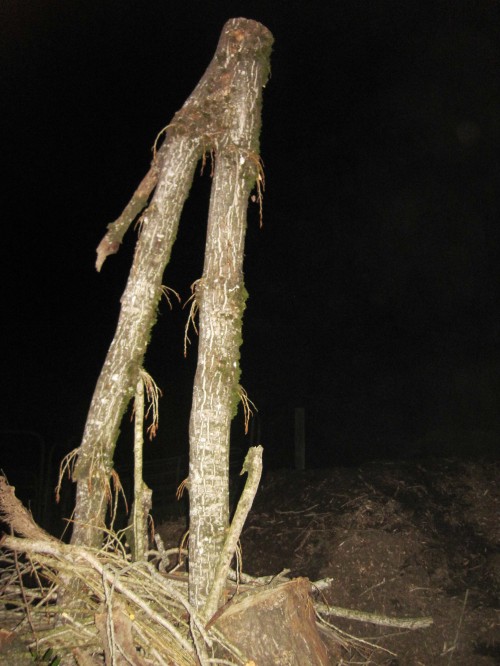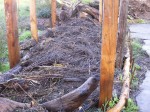
Cricket Compost Corral is a wildlife habitat installation that was installed October 2014 at the Laguna Environmental Center. This post is about moving a garden resource (debris) pile to Cricket Compost Corral. The new compost will help jumpstart the compost pile and the wildlife habitat features of the pile. The new compost will help raise the soil level of the compost so that the compost will drain better, stay warmer, and work more efficiently. Also, the new compost resources will come with a rich biota of fungi, soil microbes, crawly critters, and perhaps animals of higher trophic levels.
The Laguna de Santa Rosa Foundation, operates the Laguna Environmental Center, on Stone Farm, at 900 Sanford Road, Santa Rosa, California, 95401. This wildlife habitat installation borders the LEC’s (Laguna Environmental Center’s) Native Plant Nursery, which is used for the Foundation’s Restoration Program.
“Cricket Compost Corral Gets A Habitat Blanket” is an outdoor classroom project — Science is just the beginning! The students of Orchard View School, substitute teacher Alison, and I had fun at this outdoor classroom Biology project. Teacher Sunny Galbraith worked logistics before installation day.
Before the students arrive — fenceline garden resource pile:
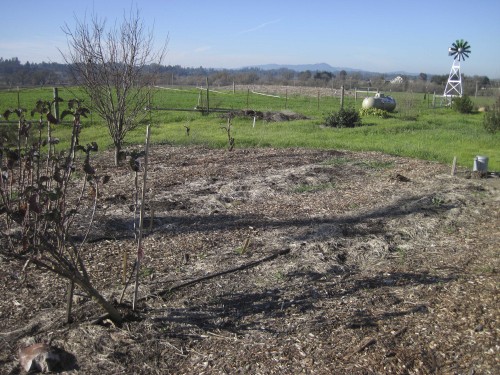 Foreground = Veggie Garden at the LEC. The resource debris pile to be moved is in the background, straight back off the garden’s corner, next to the fence, left of the propane tank.
Foreground = Veggie Garden at the LEC. The resource debris pile to be moved is in the background, straight back off the garden’s corner, next to the fence, left of the propane tank.
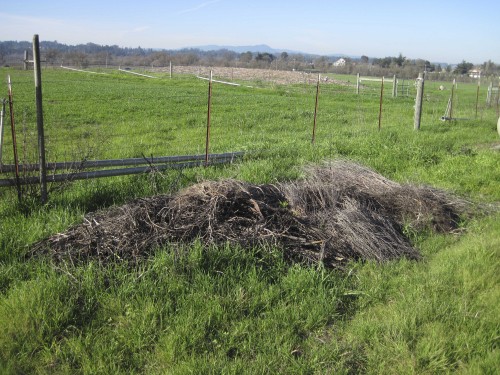 Winter rains have greened the grass around the resource pile.
Winter rains have greened the grass around the resource pile.
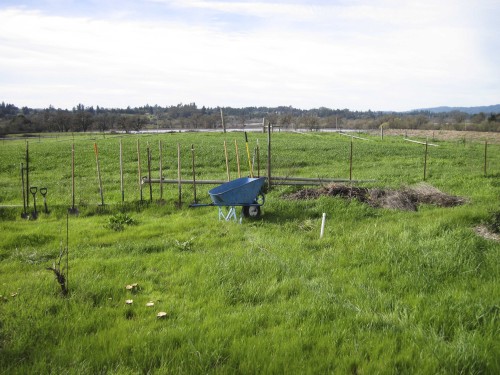 Everyone grab a tool. Let’s move this pile!
Everyone grab a tool. Let’s move this pile!
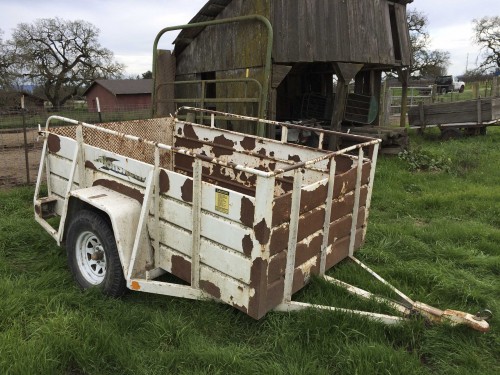 “Rusty” will help us move the resource pile across the LEC grounds quickly, saving a lot of wheelbarrow loads.
“Rusty” will help us move the resource pile across the LEC grounds quickly, saving a lot of wheelbarrow loads.
Gathering organic debris (horse manure and fallen poplar branches) to add to Cricket Compost Corral.
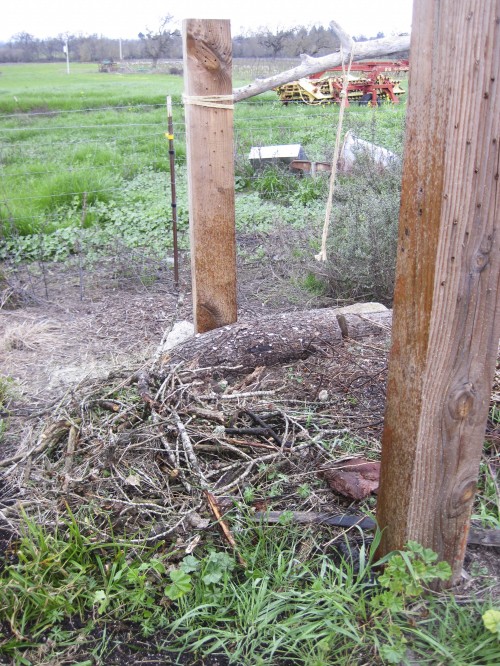 Using the gathered manure/branches to build up a side of CCC.
Using the gathered manure/branches to build up a side of CCC.
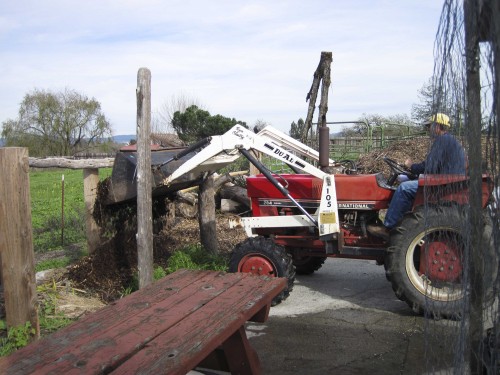 Farmer Stuart Schroeder, of Stone Farm, lends a tractor to add a layer of wood chips for the students to spread.
Farmer Stuart Schroeder, of Stone Farm, lends a tractor to add a layer of wood chips for the students to spread.
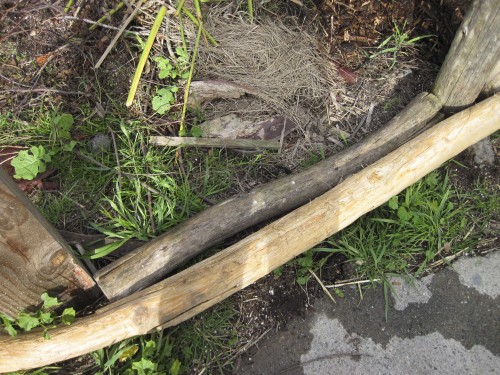 Logs are used to frame the new resources added to CCC. The wood frame will help keep the new higher soil level intact, wick water to the Santa Barbara sedge to be planted, and provide habitat for critters.
Logs are used to frame the new resources added to CCC. The wood frame will help keep the new higher soil level intact, wick water to the Santa Barbara sedge to be planted, and provide habitat for critters.
Moving the resource pile:
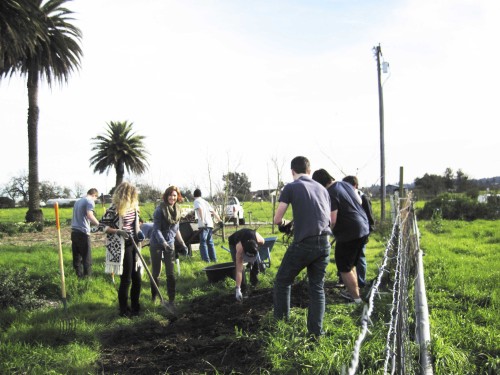 Students haul off the resource pile to the truck trailer.
Students haul off the resource pile to the truck trailer.
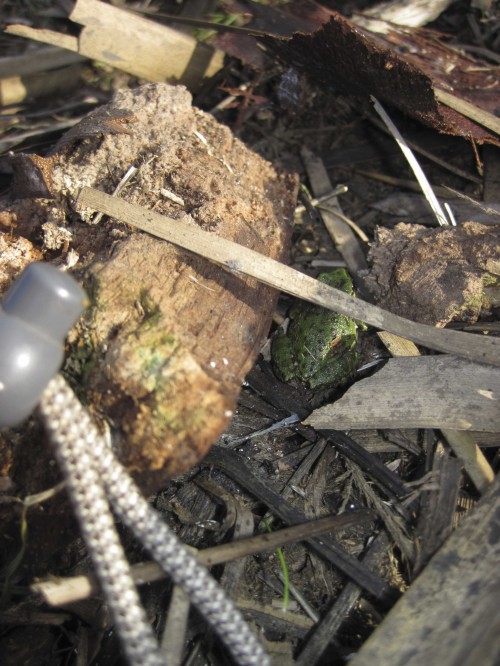 A Pacific Tree Frog (Pseudacris regilla), green phase, hides in the resource pile.
A Pacific Tree Frog (Pseudacris regilla), green phase, hides in the resource pile.
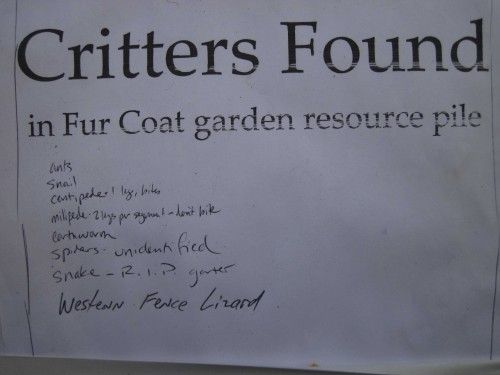 Keep it Science — we listed all the critters we saw. The resource pile is a critter mystery pile.
Keep it Science — we listed all the critters we saw. The resource pile is a critter mystery pile.
Adding the resource pile to Cricket Compost Corral:
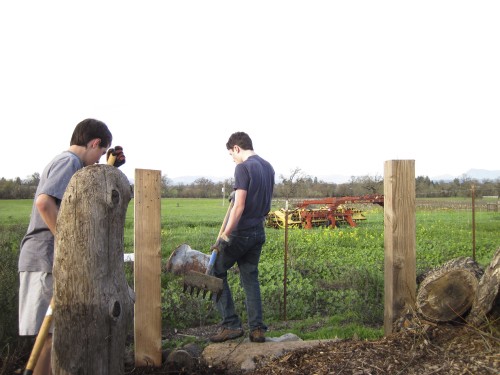 Wood chips are spread to make a rich base for the resource pile on Cricket Compost Corral.
Wood chips are spread to make a rich base for the resource pile on Cricket Compost Corral.
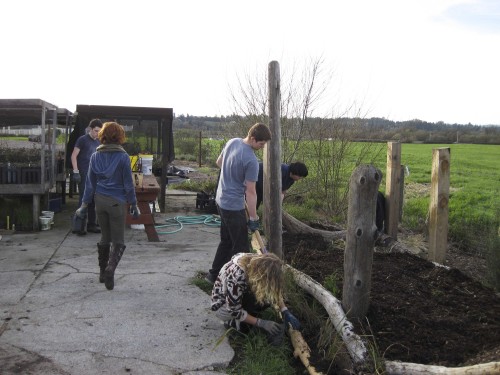 Foreground, a student plants Santa Barbara sedge, a native, drought-tolerant plant that will hold the compost’s hill in place. Far right (back), students install driftwood to complete the frame of CCC.
Foreground, a student plants Santa Barbara sedge, a native, drought-tolerant plant that will hold the compost’s hill in place. Far right (back), students install driftwood to complete the frame of CCC.
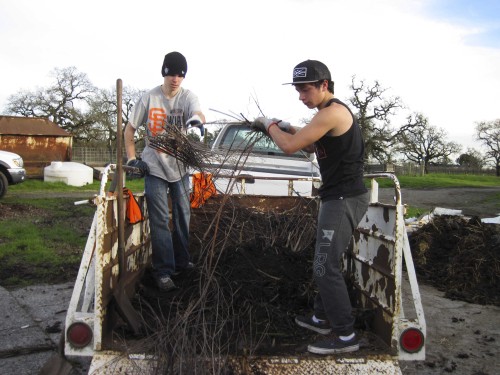 Unloading Rusty the Trailer. About this time during unloading, a western fence lizard was found in the trailer and introduced into Cricket Compost Corral. You have a new home!
Unloading Rusty the Trailer. About this time during unloading, a western fence lizard was found in the trailer and introduced into Cricket Compost Corral. You have a new home!
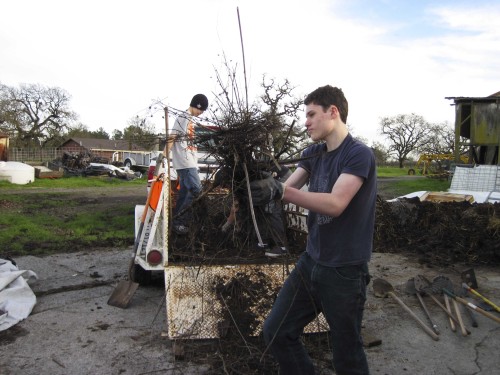 A bouquet of veggie garden sticks for Cricket Compost Corral.
A bouquet of veggie garden sticks for Cricket Compost Corral.
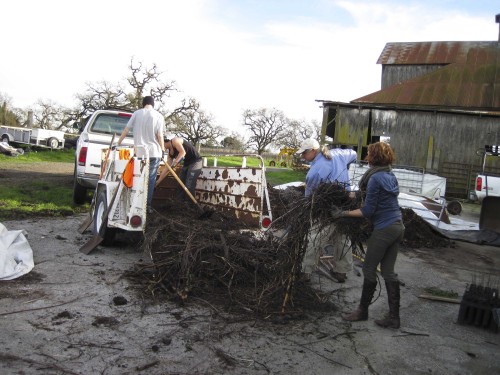 One garden’s debris is another garden’s treasure.
One garden’s debris is another garden’s treasure.
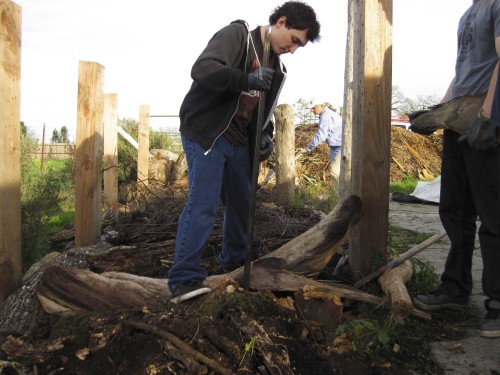 Securing the end of CCC’s frame with driftwood held in place by palm tree frond wedges.
Securing the end of CCC’s frame with driftwood held in place by palm tree frond wedges.
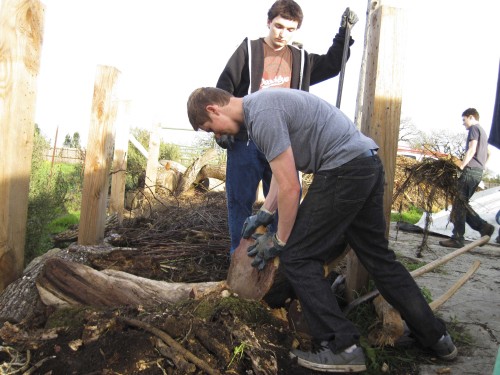 In goes a palm tree wedge — local, FREE materials!
In goes a palm tree wedge — local, FREE materials!
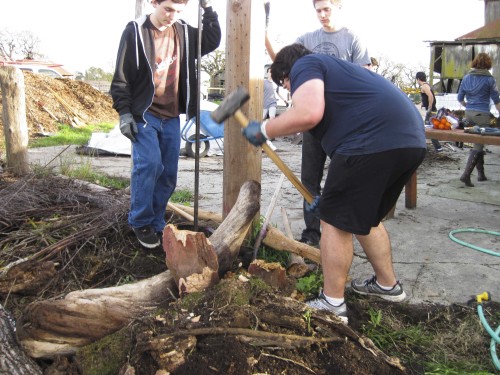 A sledge to finish CCC’s frame.
A sledge to finish CCC’s frame.
Finishing touches on CCC gets a habitat blanket:
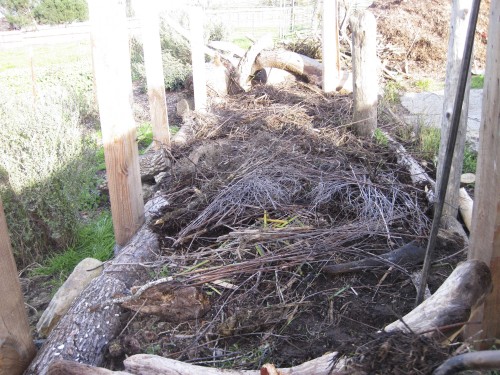 The veggie garden resource pile now sits on top of Cricket Compost Corral.
The veggie garden resource pile now sits on top of Cricket Compost Corral.
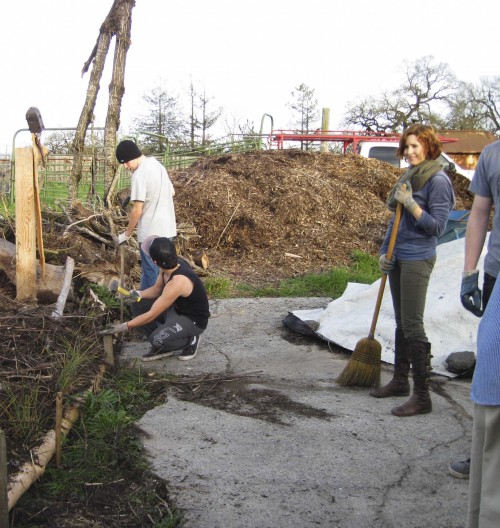 Tree limbs are staked into place to terrace plant Santa Barbara sedge along CCC’s front edge. The compost gets a lot of fuel from keeping the Nursery’s concrete swept.
Tree limbs are staked into place to terrace plant Santa Barbara sedge along CCC’s front edge. The compost gets a lot of fuel from keeping the Nursery’s concrete swept.
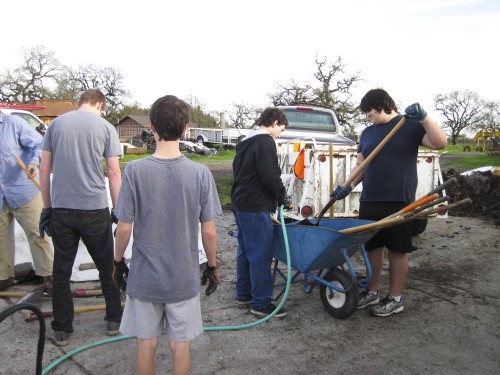 Cleaning tools before our class is finished.
Cleaning tools before our class is finished. 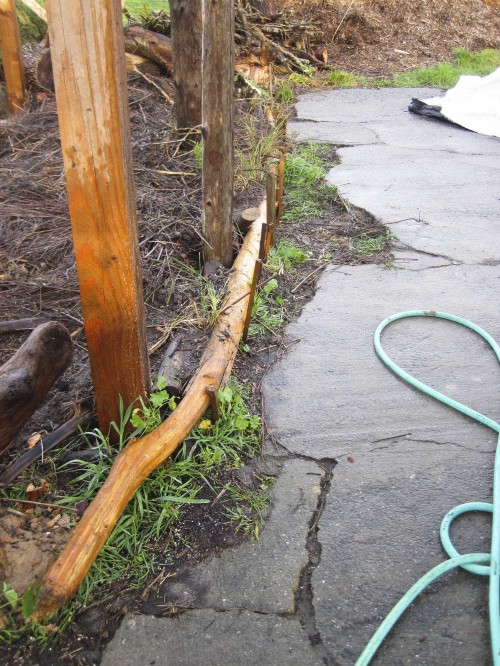 Terrace planting of Santa Barbara sedge to keep the compost’s soil level from eroding. Ultimately, the wood will rot away but the sedge mound will hold the soil in place. The sedge will also provide habitat for the compost’s critters.
Terrace planting of Santa Barbara sedge to keep the compost’s soil level from eroding. Ultimately, the wood will rot away but the sedge mound will hold the soil in place. The sedge will also provide habitat for the compost’s critters. 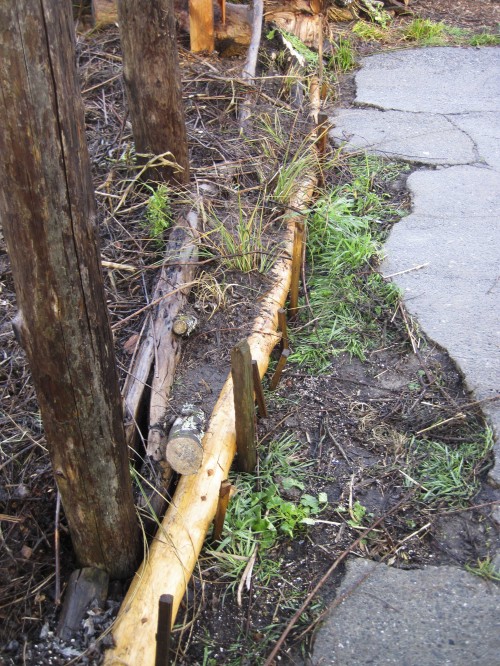 Close up of sedge planting.
Close up of sedge planting.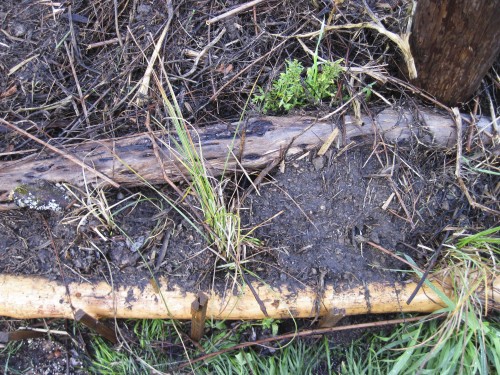 A plug of sedge (center) sits in a soil-filled raised bed made by two tree limbs.
A plug of sedge (center) sits in a soil-filled raised bed made by two tree limbs.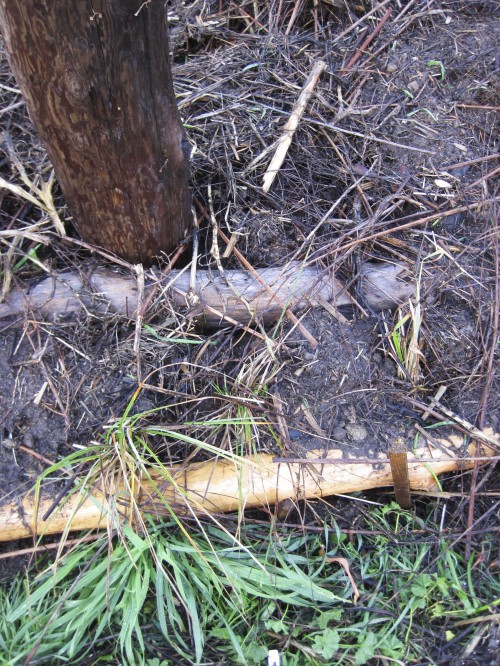 Weeds in front. Sedge behind the terracing limb.
Weeds in front. Sedge behind the terracing limb.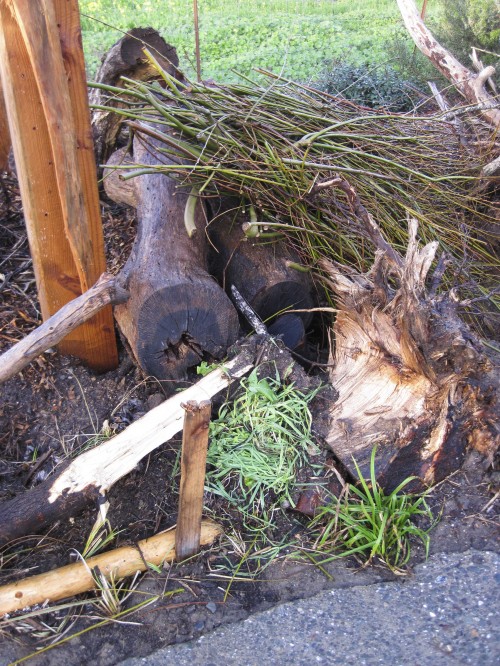 A plug of grass with yarrow plants planted at the base of adjacent Log Pile Apartments.
A plug of grass with yarrow plants planted at the base of adjacent Log Pile Apartments.
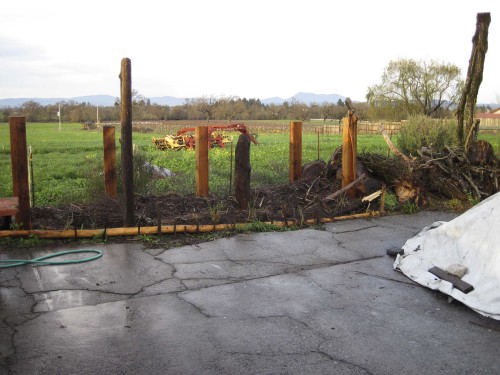 Watered down and ready to call the job done.
Watered down and ready to call the job done.
A thank you to the Laguna Foundation’s staff, especially Wendy Trowbridge, Director of Restoration and Conservation Science Programs, and Brent Reed, Restoration Projects Supervisor. Cool project!
Enjoy your wildlife habitat creations. Habitat it!
Tony
Wildlife at Orchard View student-built habitats at the LEC
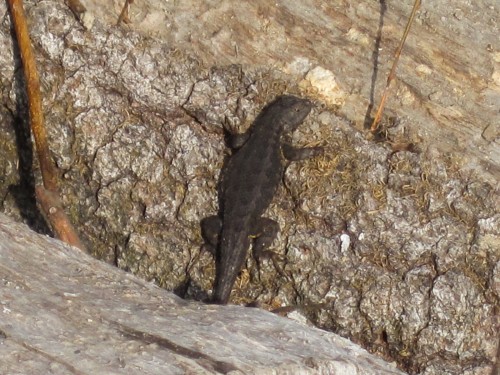 Western fence lizard in Log Pile Apartments.
Western fence lizard in Log Pile Apartments.
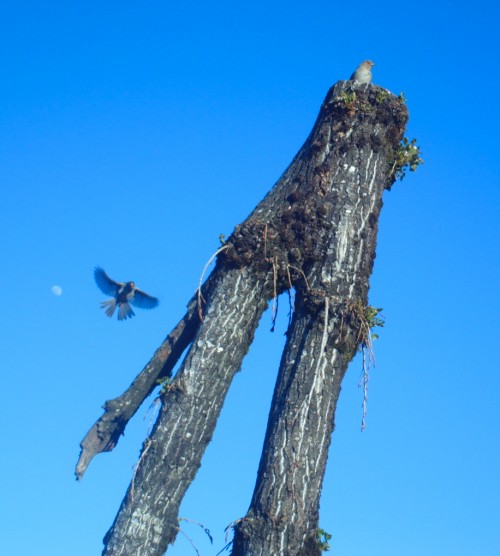 Resting bird about to get company. Habitat is Garter Snake Ravine. Bird cam photo.
Resting bird about to get company. Habitat is Garter Snake Ravine. Bird cam photo.
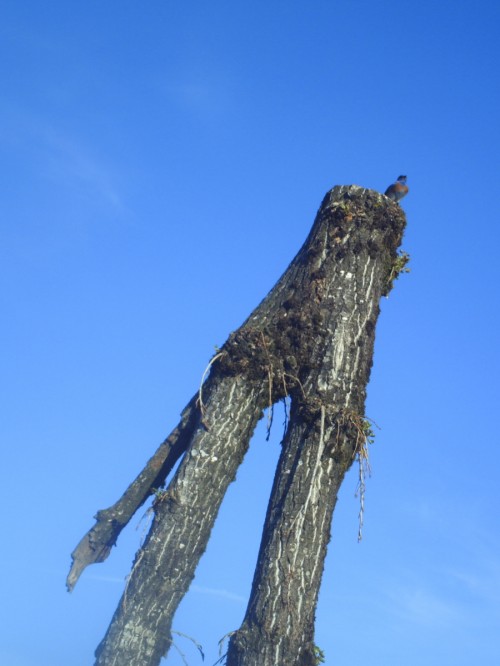 Violet Green Swallow perching westward. Habitat is Garter Snake Ravine. Bird cam photo.
Violet Green Swallow perching westward. Habitat is Garter Snake Ravine. Bird cam photo.
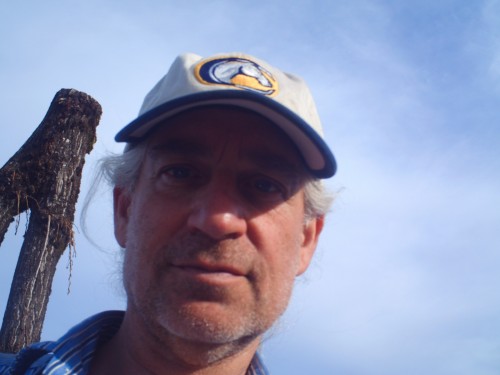 Caught one! White Short Bill, male, seasonal outfit, unshaven. Bird cam photo.
Caught one! White Short Bill, male, seasonal outfit, unshaven. Bird cam photo.
